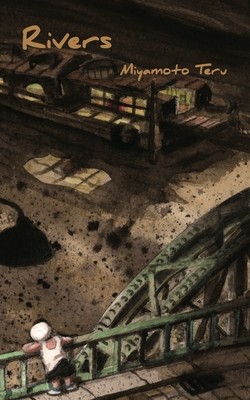
- We will send in 10–14 business days.
- Author: Teru Miyamoto
- Publisher: Kurodahan Press
- Year: 2014
- Pages: 266
- ISBN-10: 4902075598
- ISBN-13: 9784902075595
- Format: 12.7 x 20.3 x 1.5 cm, minkšti viršeliai
- Language: English
- SAVE -10% with code: EXTRA
Reviews
Description
Miyamoto Teru has established a considerable and devoted following in Japan, and is rapidly building a devoted readership in other Asian countries and parts of Europe as his fiction is translated into various languages. With only a few of his works currently available in English, however, Anglophone readers have for the most part been unaware of the "Teru" literary phenomenon. This book brings together his most famous work, the superlative Rivers Sequence: "Muddy River," which was published in 1977 and won the 78th Akutagawa Prize; "River of Fireflies," published the following year and promptly winning the 13th Dazai Osamu Prize; and "River of Lights," also published in 1978 but later extensively rewritten and expanded into a novel. All three works have been released as major films in Japan.
Rivers explores the perennial themes of Miyamoto's fiction, drawing extensively on his own childhood in working-class Osaka neighborhoods to recreate a vivid and powerful world with consummate skill. While he frequently deals with perennial themes of life, death, and loss, his writing is touched with a pathos and humor to bring out the essential humanity of each character. Like the depressed areas described in much of his fiction, his characters too are often "left behind" by post-war Japan's rapid economic growth, by unexpected changes in their lives, or by the deaths of loved ones. His heroes are ordinary people who, as he puts it, "are trying to lift themselves up, who are struggling to live," and who achieve quiet triumphs.
EXTRA 10 % discount with code: EXTRA
The promotion ends in 23d.07:23:20
The discount code is valid when purchasing from 10 €. Discounts do not stack.
- Author: Teru Miyamoto
- Publisher: Kurodahan Press
- Year: 2014
- Pages: 266
- ISBN-10: 4902075598
- ISBN-13: 9784902075595
- Format: 12.7 x 20.3 x 1.5 cm, minkšti viršeliai
- Language: English English
Miyamoto Teru has established a considerable and devoted following in Japan, and is rapidly building a devoted readership in other Asian countries and parts of Europe as his fiction is translated into various languages. With only a few of his works currently available in English, however, Anglophone readers have for the most part been unaware of the "Teru" literary phenomenon. This book brings together his most famous work, the superlative Rivers Sequence: "Muddy River," which was published in 1977 and won the 78th Akutagawa Prize; "River of Fireflies," published the following year and promptly winning the 13th Dazai Osamu Prize; and "River of Lights," also published in 1978 but later extensively rewritten and expanded into a novel. All three works have been released as major films in Japan.
Rivers explores the perennial themes of Miyamoto's fiction, drawing extensively on his own childhood in working-class Osaka neighborhoods to recreate a vivid and powerful world with consummate skill. While he frequently deals with perennial themes of life, death, and loss, his writing is touched with a pathos and humor to bring out the essential humanity of each character. Like the depressed areas described in much of his fiction, his characters too are often "left behind" by post-war Japan's rapid economic growth, by unexpected changes in their lives, or by the deaths of loved ones. His heroes are ordinary people who, as he puts it, "are trying to lift themselves up, who are struggling to live," and who achieve quiet triumphs.


Reviews